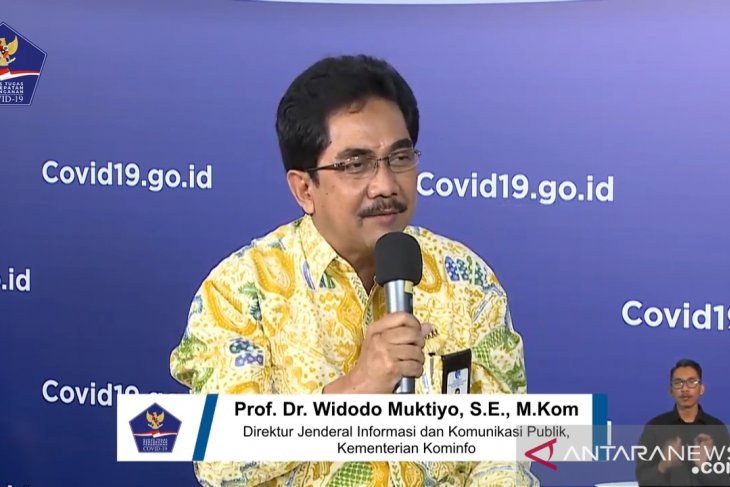Live Streaming
Program Highlight
Company Profile
Ministry of Communication and Informatics Records 686 Hoaxes on COVID-19
Written by Ani Hasanah
Director General of Public Information and Communication at the Ministry of Communication and Informatics, Widodo Muktiyo. (ANTARA/Ahmad Zulfikar)
The Indonesian Ministry of Communication and Informatics has, as of Wednesday, recorded 686 false news stories, or hoaxes, in regard to COVID-19, which have disrupted the dissemination of information on the pandemic, said an official.
"There are individuals who deliberately create different information and create noise. This is a challenge for public information as well," said director general of Public Information and Communication at the Ministry of Communication and Informatics, Widodo Muktiyo, at an online discussion forum on the Task Force for the Acceleration of COVID-19 Handling completing two months, held on Wednesday in Jakarta.
He said individuals can easily produce and distribute their own information at any moment, without requiring any permits, while the Ministry of Communication and Informatics can only enforce rules and sanctions based on the regulations stipulated in the Information and Electronic Transactions Law (ITE).
"If the rules are violated, then there are sanctions. There have been 103 (individuals) who have faced criminal and legal issues to date," he informed.
With regard to hoaxes, he explained, there are three platforms on which such “noises” in information occur, the first one being the Internet.
When problems occur at this first level, a relevant ministry can communicate them to the internet service provider, he said.
The Ministry of Communication and Informatics can take direct action when false information circulates on the second platform — social media, including Instagram, Facebook, and Twitter.
When violations occur on these platforms, the Ministry or the relevant authorities can take the posts down or block them to prevent other users from seeing or accessing false information.
"The most dangerous level is the third level: closed media systems, such as WhatsApp groups," Muktiyo informed.
Despite the closed media system being more challenging to tackle than the others, he said he believed that all three platforms present their own challenges in ensuring that the public does not blindly consume false information and take it as the truth, especially considering the impact of COVID-19, which has created economic and social issues, as well as social assistance related matters.
He said fake news could add to wrong perceptions established among the public, and thus, hurt the nation and the people. (ANTARA)



